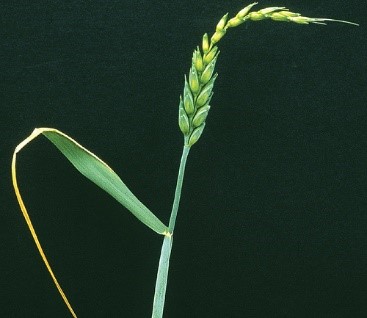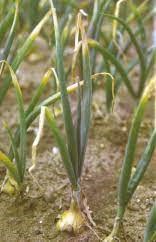
Copper
Nutrient Benefits
Antagonism
High Cu levels can reduce the availability of:
- Iron
- Zinc
- Manganese
- Molybdenum
Stimulation
- Mn uptake and assimilation
Functions
- Chlorophyll production
- Photosynthesis
- Production of enzymes protein
- Involved in several enzyme systems
- Oxidation reduction reactions
- Formation of lignin
- Water movement regulation
- Seed production
Deficiency Symptoms
- Marginal chlorosis of young leaves
- Twig dieback
- Pigtailing
- Necrotic, brown spots over leaf surface
- Reduced growth and yields
Factors Affecting Availability
- Soils with excess N or P
- High pH soils
- Heavily limed soils
- Soils that have had Mo applied
- Peat and muck soils high in organic matter
- Leached acid soils
- Alkaline and calcareous soils
- Cold, wet conditions (delayed availability at spring time)
- Soils with high concentration of Mn
- Soils formed from parent materials low in Cu
Sensitive Crops
- Cereals, corn, alfalfa, citrus trees, lettuce, carrots, onions, oilseeds, tomatoes, spinach, flax, blueberries, beets, peppers
TREATMENT OPTIONS
The following OMEX products can assist with addressing and correcting Copper deficiency:
Visual Guide


